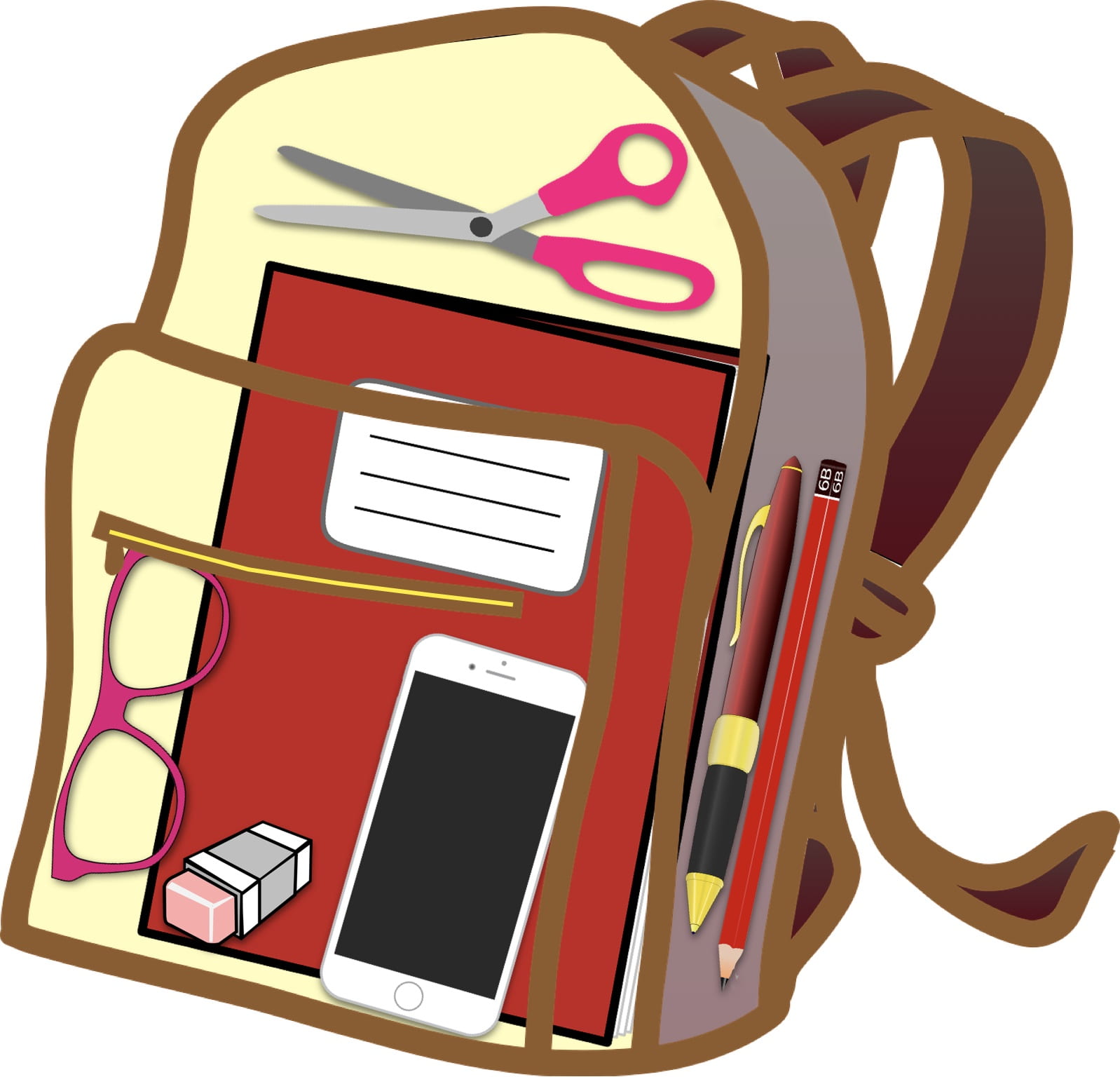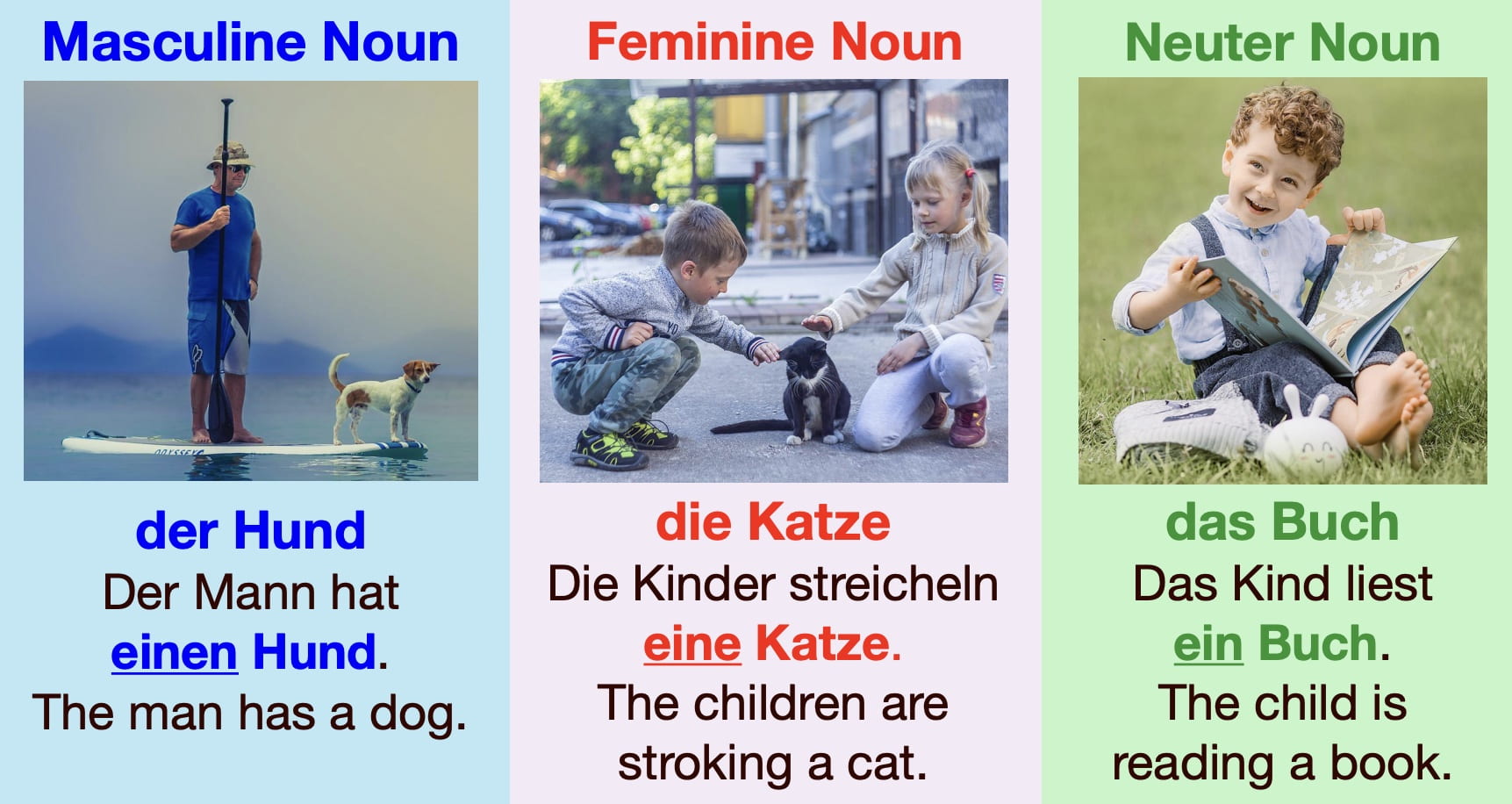Question 1: Selecting the Right Form of the Indefinite Article [einen, eine, ein]
If you need a refresher, you can read a simple explanation of this grammatical pattern here.
In the accusative case, masculine nouns require einen instead of the form they take in the nominative case, ein. Yet feminine nouns retain the form eine and neuter nouns the form ein.
Keeping these rules in mind, fill in the correct form in each of the following blanks.
Important: If no additional letter is necessary, type a dash (-).
Noun Legend:
*Masculine *Feminine *Neuter
In meiner Schultasche habe ich…
 • ein Bleistift
• ein Bleistift
• ein Schere
• ein Heft
• ein Fußball
• ein Handy
• ein Kuli
• ein Radiergummi
• ein Brille
• ein Regenschirm 
• ein Mäppchen
Question 2: Revising the Accusative Rules
To revise this topic, read the easy summary at this link. The picture below also summarises the details.
Can you tick the three correct statements below?

a.
b.
c.
d.
e.
Question 3: Practice with einen, eine and einIn the short text below, all the nouns in the accusative case (object form) are colour-coded. Apply your knowledge of the correct forms of einen, eine and ein to fill in the endings. They work for kein as well: keinen, keine, kein.
Important: If no additional letter is necessary, choose the dash option (-).
Noun Legend:
*Masculine *Feminine *Neuter
Ich habe ein schwere  Schultasche.
Schultasche.
Das Problem ist, ich habe immer ein Laptop dabei  und ich brauche
und ich brauche  viele andere Dinge
viele andere Dinge  für die Schule.
für die Schule.
Zum Beispiel habe ich oft ein Ordner, ein Mäppchen und ein Lehrbuch  in meiner Schultasche. Und natürlich trage ich auch ein Handy und ein Regenschirm, falls es regnet.
in meiner Schultasche. Und natürlich trage ich auch ein Handy und ein Regenschirm, falls es regnet. 
Manchmal nehme ich auch ein Fußball mit in die Schule, denn ich spiele gern mit Freunden. Leider hat meine Schule kein Fußballfeld, aber es gibt ein großen Park in der Nähe und wir gehen nach der Schule  dorthin
dorthin  .
.